Litang, in western Sichuan Province, is quite close to Tibet, so Tibetans make up much of the population. And as I said before, the town also is home to a large monastary, which hosts some 1,000 monks. I spent most of my time in Litang wandering, simply enjoying the fascinating scenery, the Tibetan architecture and the welcoming people.
Looks a bit like sub-Saharran Africa, no?
 |
| From China |
And I had never seen skies so blue.
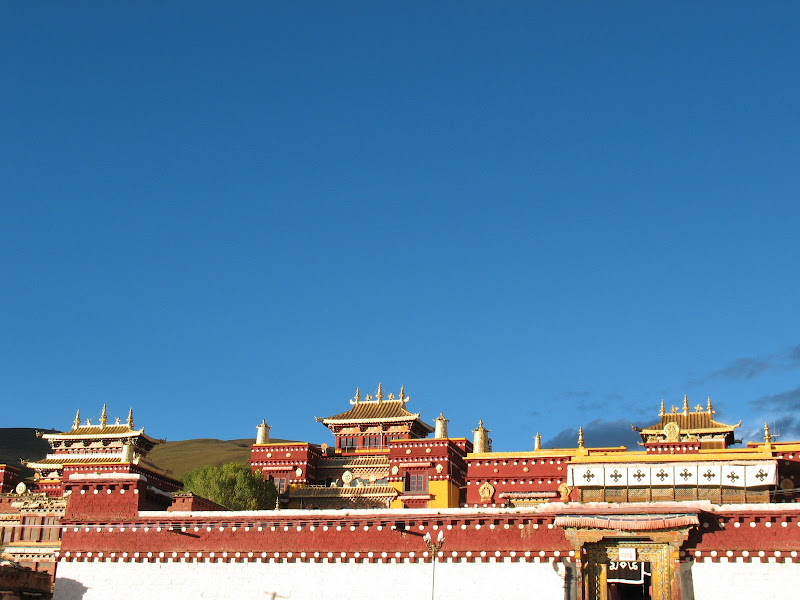 |
| From China |
The ever-present yak population.
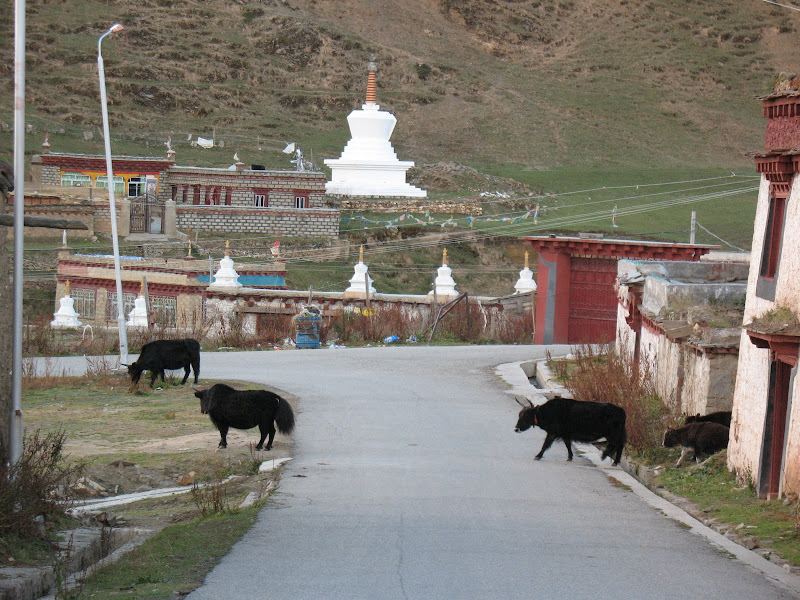 |
| From China |
And the ever-present trash.
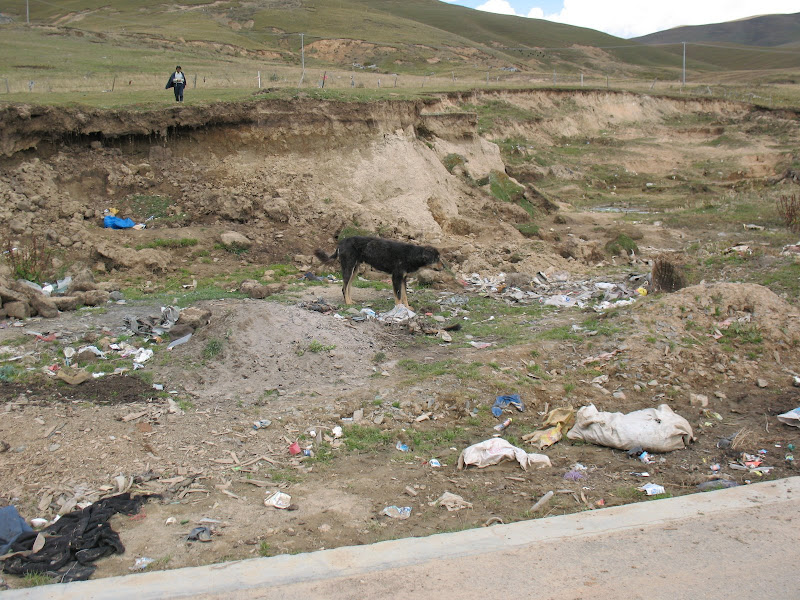 |
| From China |
And the ever-present prayer flags.
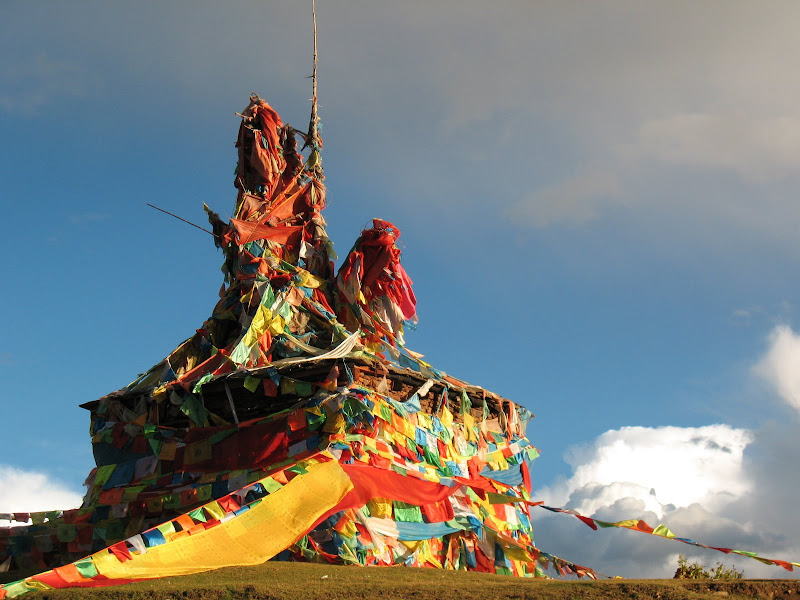 |
| From China |
But it's the people who bring the most character to this town.
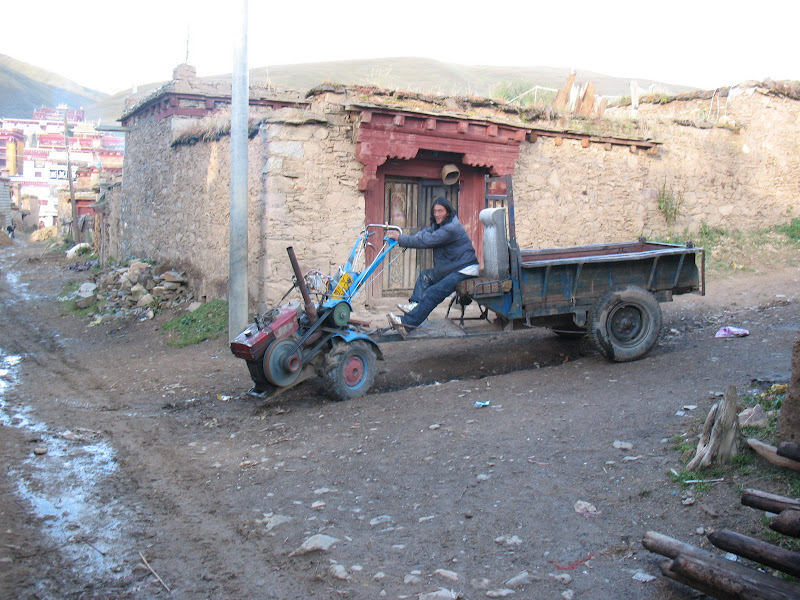 |
| From China |
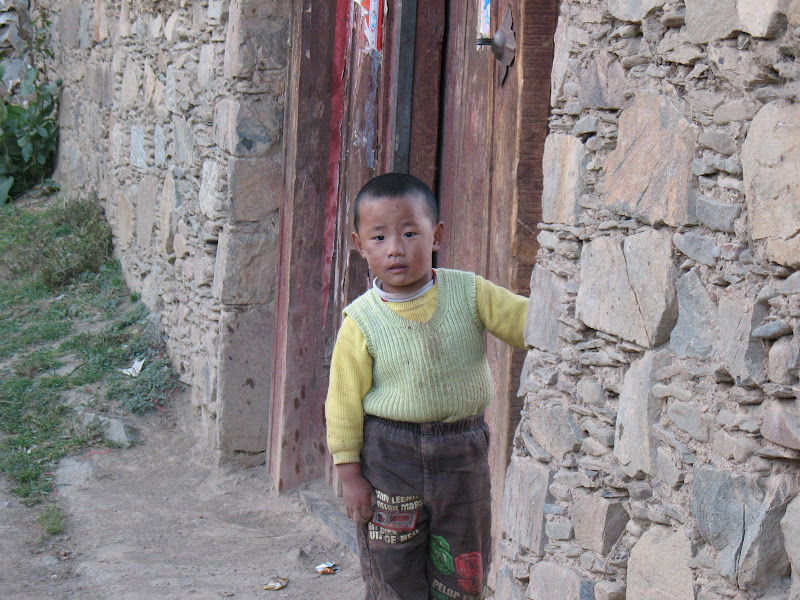 |
| From China |
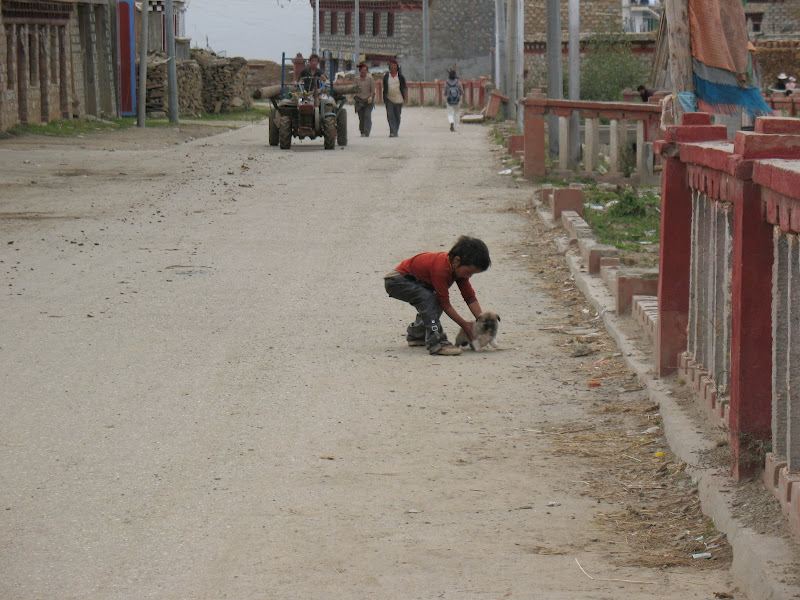 |
| From China |
These two gentlemen invited me to sit with them, despite not speaking a word of English. This was a common occurence--waving you over, Please sit! America? Very good!
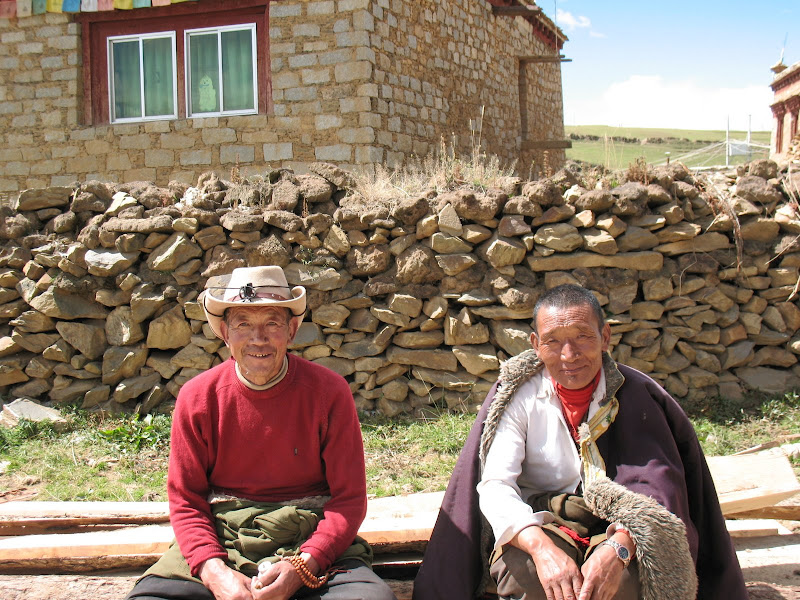 |
| From China |
But one person in particular has a special place in the hearts of foreign visitors to Litang: Mr. Zheng. He owns a local restaurant and is excited to share all he knows about the area with visitors. The walls of his place are full of postcards and photos from those who have passed through, and his guest book is full of messages from around the world. Sim, the adventurous hostel owner who helped me plan this backwater trip, has become good friends with Mr. Zheng and recommends that all visitors stop by during their stay in Litang. In the end, as he usually does, Mr. Zheng found me.
Walking down the street, I hear a hello! which is perfectly common in this town. I turn to return the greeting and recognize Mr. Zheng from the photo is Sim's brochure. I shake his hand and tell him that not only had I met Sim, but he should be passing through Litang sometime soon (with the Lonely Planet writer). I sit down for lunch and a few minutes later, Mr. Zheng hands me his cell phone. "Sim!" he says. Turns out he and Carolyn are due to arrive in Litang that very afternoon. I enjoy dinner with them at the restaurant (compliments of Mr. Zheng) that night and let them know I will try to meet them for breakfast as well.
I'll give you the Cliff's Notes version of the rest of the story:
Oct. 1 is a one-week holiday in China. Lots of Chinese travelers who don't know proper hostel etiquette invade my hostel. Loud partying ensues, plus more vomiting than I've ever seen at one time. Unable to even take a shower the next morning because of incompetent hotel staff, I go to breakfast with Sim and Carolyn and am convinced to skip town that day and head south with them toward Yunnan Province. We spent the night in Xiangcheng and the next day they headed back north, while I went south.
Sim takes a photo of Mr. and Mrs. Zheng in front of their restaurant.
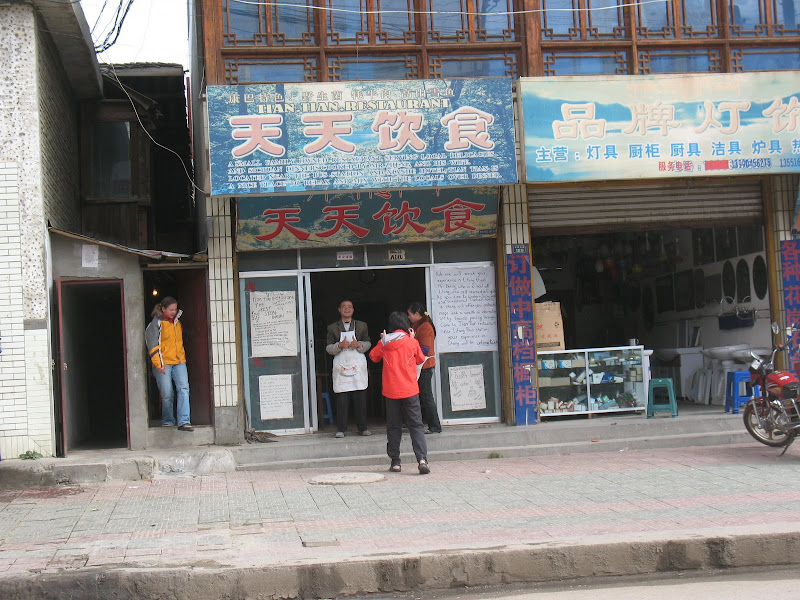 |
| From China |
An ethical decision
Tibetans have a unique way of disposing of bodies when people die. Due to the altitude, there are few trees for burning and the ground is often too hard to dig graves. Sky burial has become the method of choice for many. It's also become somewhat of a morose tourist attraction.
I will leave out the gruesome details, but what happens in the end is the body is devoured by vultures, who take it up to the sky. Mr. Zheng encourages travelers to check out a sky burial, and his guest book has many recommendations from other travelers as well.
In the end I gave it a miss. Not for fear of getting sick at the sight of the mutilated body. But because I simply had no business being there. It's one thing to go to a stranger's funeral. But this, I felt, is a far more personal event; one which a foreigner has no part in.



1 comment:
Good call...
Post a Comment